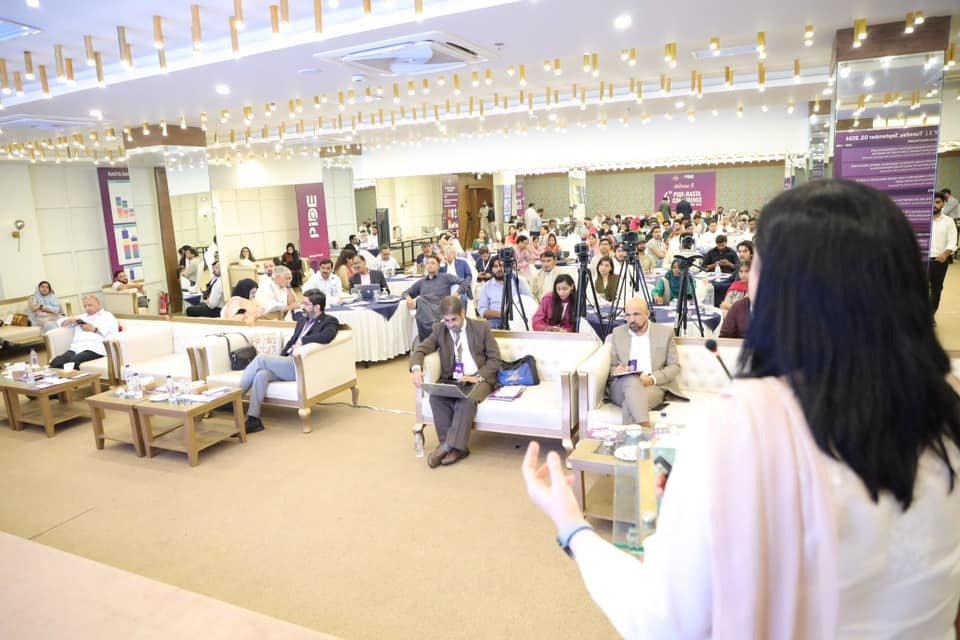Islamabad : Director of Research Dr. Durre Nayab, PIDE, provided the findings from the Pakistan Panel Household Survey (PPHS) 2024 Round. She stated that PPHS 2024 marks a big milestone in socio-financial research, imparting comprehensive insights into the dynamic shifts inside Pakistan’s families over the past many years.
Initiated by means of the Pakistan Institute of Development Economics (PIDE) with financial backing from the World Bank in 2001, the survey has evolved thru diverse rounds, with the 2024 generation increasing its city illustration and protecting 14 additional districts.
For the primary time, the survey includes virtual statistics collection methods, ensuring a broader scope and greater exact information on schooling, employment, family property, and new metrics such as financial literacy and care work employment.
The PPHS 2024 additionally introduced new modules, that specialize in CNIC/B-form registrations, eating-out fees, and subjective welfare, making it one of the maximum enormous panel surveys ever carried out in Pakistan. The RASTA Conference 2024 concluded with an impactful 2nd day of classes, specializing in pressing problems in meals, agriculture, and monetary management in Pakistan.
Hosted by the Pakistan Institute of Development Economics (PIDE), the conference added together specialists and policymakers to talk about the demanding situations and opportunities dealing with these vital sectors. The day started with a consultation on “Food & Agriculture,” which featured extensive discussions at the effects of presidency guidelines on agricultural manufacturing. Khair Muhammad Kakar from UET Khuzdar supplied a complete evaluation of the effect of government regulations on olive manufacturing in Pakistan.
His research highlighted that whilst government initiatives have promoted olive cultivation, numerous demanding situations persist, along with confined technical know-how amongst farmers, inadequate get right of entry to to best plant substances, and inadequate processing facilities. Kakar emphasized the want for steady and targeted policy interventions to overcome those barriers and enhance olive manufacturing, in particular in areas like Balochistan, which display full-size capability.

Saranjam Muhammad Baig from Karakoram International University, Gilgit, supplied an in-intensity exam of the political financial system of wheat subsidies and meals security in Gilgit-Baltistan. His observe revealed that regardless of the location receiving sizable wheat subsidies since the Seventies, meals lack of confidence remains a good sized trouble, affecting over 50% of the populace. Baig’s analysis diagnosed inefficiencies inside the subsidy distribution, with wealthier families reaping rewards disproportionately.
He advocated a focused subsidy technique, stepped forward transparency in distribution, and aid for local agriculture to deal with these inefficiencies and beautify meals security in the area. Irfan Ahmad Baig from MNS University of Agriculture, Multan, discussed the complexities of taxing condominium earnings in agriculture.
His presentation shed light on the skewed land distribution in Pakistan, wherein a small percentage of large landowners keep a vast part of the land. Baig argued for complete agrarian tax reform to address this disparity and cautioned that taxing absentee landlords can be an effective way to generate revenue for public services and infrastructure development.
This landmark survey is crucial for policymakers, economists, and researchers, offering crucial information to understand the socio-monetary transitions inside the united states of america. With a sturdy sample of over eight,500 families, the PPHS 2024 lets in for deeper evaluation of urban and rural dynamics, presenting a clearer picture of poverty, labor mobility, and household intake styles.
The findings will help form future guidelines geared toward addressing social inequality, employment developments, and family protection, underscoring the significance of long-term data monitoring in socio-economic development. The afternoon session on “Fiscal Management” featured critical opinions of governance systems and public zone management.
Ayezza Sattar from the, Islamabad, supplied a case study at the governance shape in the Ministry and its public quarter entities. Her take a look at highlighted sizable flaws in the administrative framework, consisting of a lack of brotherly love a few of the numerous wings of the Ministry and troubles related to political interference and intellectual integrity. Sattar referred to as for amendments to the Rules of Business and a redistribution of work within the Ministry to deal with those problems and improve governance results.
Asadullah Khan from Karakoram International University, Gilgit, centered on the governance of public quarter projects in Gilgit-Baltistan, mainly within the electricity sector. His evaluation discovered systemic troubles in project management, inclusive of bad stakeholder control, ineffective governance mechanisms, and bureaucratic delays. Khan encouraged the adoption of e-procurement, better planning, and robust danger control strategies to improve the performance of these tasks.
Sobia Khurram from the University of the Punjab, Lahore, explored the limitations to the adoption of tax e-submitting in Pakistan. Her research identified the complexity of the current e-submitting system, lack of information, and popular distrust inside the tax authority as key challenges. Khurram proposed several enhancements, which includes simplifying the e-filing interface, enhancing taxpayer education thru higher tutorials, and promoting attention of the help services available to taxpayers.
The consultation concluded with Muhammad Nadeem Sarwar from FAST National University, Islamabad, who furnished a detailed analysis of tax prices in Pakistan. Sarwar’s look at highlighted the growing burden of tax fees, especially in customs and sales tax, and advocated the removal of unnecessary exemptions and a more obvious tax device to improve revenue series.
The convention concluded with final comments from Nadeem ul Haque, Chairman of RAC, RASTA, and Vice-Chancellor of PIDE. Haque emphasized the importance of research-driven policy-making and outlined the subsequent steps for RASTA’s ongoing initiatives. He extended his gratitude to all members for his or her precious contributions to the convention’s success.





















